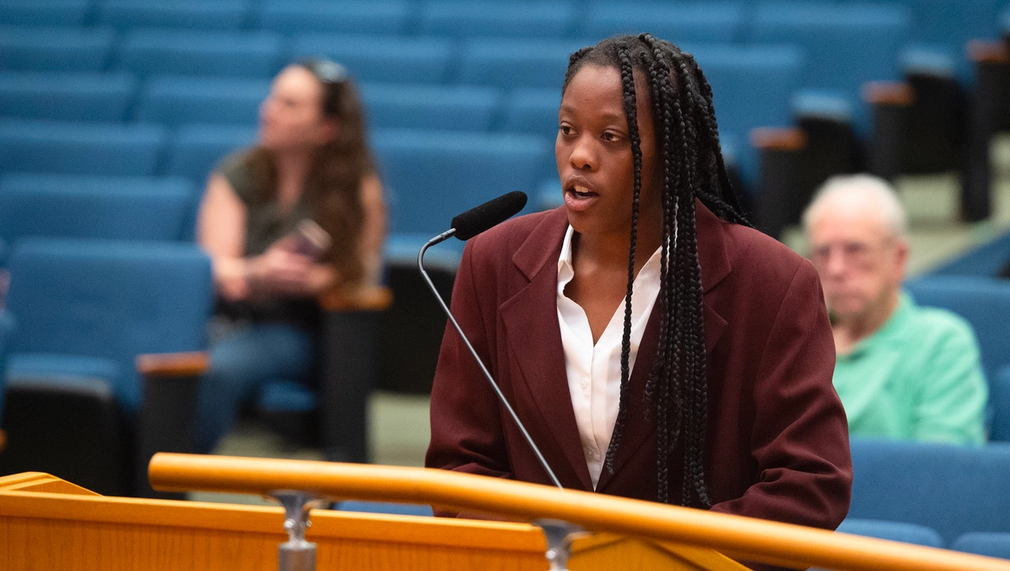Championing Change Through the Voices of those Impacted by Foster Care
The Alliance for Children’s Rights is dedicated to promoting change that will make life better and more equitable for children and youth in foster care. Those directly impacted should have a strong voice in shaping the system designed to serve them. With this project, the Alliance will expand our current efforts to advance meaningful youth engagement to improve outcomes for those impacted by LA’s child welfare system. Better outcomes for our community’s foster youth will lead us to a better LA.

What is the primary issue area that your application will impact?
Support for Foster and Systems-Impacted Youth
In which areas of Los Angeles will you be directly working?
County of Los Angeles
In what stage of innovation is this project, program, or initiative?
Expand existing project, program, or initiative
What is your understanding of the issue that you are seeking to address?
Children and youth in the foster care system face unique challenges that impact their access to equitable outcomes. Of the nearly 30,000 children in LA’s foster care system, the majority live in poverty, and over 80% are Black or Latinx. The trauma they have experienced – through no fault of their own – increases the likelihood of learning and behavioral problems. This often results in poor academic outcomes for these youth; California’s foster youth have a 56% graduation rate compared to 85% of all students. In LA, half of youth who age out of foster care end up homeless or incarcerated. Moreover, the systems designed to serve these children and youth are complex, challenging to navigate, historically replete with bias, and not well connected, forcing youth to confront the same types of problems over and over as they try to maneuver through the systems. The pandemic has only exacerbated these challenges.
Describe the project, program, or initiative this grant will support to address the issue.
In early 2021, the Alliance convened a summit of caregivers, parents, youth, educators, social workers, and other stakeholders to envision policy reforms to promote racial equity in our child welfare system. After subsequent discussions, in July 2021 we published recommendations to address racial injustice in the system in our report, The Path to Racial Equity in Child Welfare: Valuing Family and Community. We then launched the Whole Families/Whole Communities initiative. To advance this initiative and with support of this grant, we plan to develop a Reform Council, composed of youth, parents, and caregivers to integrate their lived experiences and perspectives into advocacy for change. The members will work with local and state agencies to drive policies that promote racial justice in the systems they experienced. Led by our Policy program team, we will launch the Reform Council comprised initially of at least two youth (ages 18-24), two parents, and two caregivers. Council members will be trained on strategic storytelling, public speaking, and the rights of youth in foster care. They then will work with program leaders to craft their own experiences into stories to help advance a more just, equitable, and supportive system. Once trained, Reform Council members will make presentations at conferences, convenings, and legislative hearings to influence leaders with the power to make decisions or suggestions for improving policy and practice.
Describe how Los Angeles County will be different if your work is successful.
Long-term, we seek to advance a system in which all children and families have equitable access to the services and supports they need to remain stable. A critical component to truly advancing this goal is listening to, and incorporating feedback from, those with lived experience. We also believe achieving short-term benchmarks are key to ensuring our sustained, meaningful progress toward transforming California’s child welfare system. Within the one-year grant period, we hope to see: 1. Increased personal agency for those with lived experience in our child welfare system, through self-advocacy and influence on policy and practice reforms. 2. Greater understanding of and focus on the rights of youth impacted by foster care, how systems affect them, and strategies for improvement, including strategies to actively address bias and advance equity. These steps will create meaningful gains toward our vision of more equitable and racially just systems serving LA’s youth and families.
What evidence do you have that this project, program, or initiative is or will be successful, and how will you define and measure success?
The evaluation of our impact will be based on directly tracking metrics as well as the outcomes of our efforts. For trainings we conduct, we measure impact by number of participants and then estimate the number of children we will reach (i.e. for 250 attendees we estimate they each will impact at least two youth). To measure our impact, we will monitor the following benchmarks: 1. 6 youth, caregiver, and parents participating in the Reform Council and participate in at least 5 engagement opportunities. 2. 250 professionals and stakeholders attending a training or convening where Reform Council members shared their story, ideas, or perspective. 3. 75% of training attendees surveyed reporting an increase in their knowledge of foster youth rights and how these can improve outcomes. 4. At least one policy or practice will be updated or revised to incorporate and reflect youth perspective.
Approximately how many people will be impacted by this project, program, or initiative?
Direct Impact: 260
Indirect Impact: 500